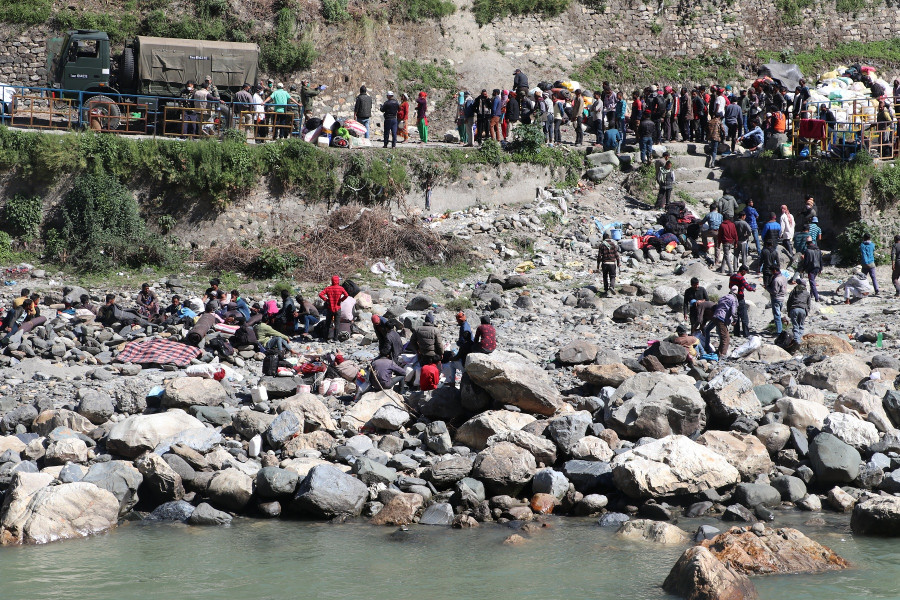National
Nepal and India agree to take care of and feed each other’s citizens stranded on the border. Crossings to remain closed
Decision was taken at the highest level from both sides and then communicated to local authorities.
Anil Giri
Nepal and India have agreed to take care of each other’s citizens stranded on the border due to the lockdown on both sides of the frontier enforced to control the spread of the contagious coronavirus.
The agreement to provide food and shelter to people stranded on the border comes as thousands of Nepalis and some Indians, desperate to return home, wait for the border crossings to re-open.
“An agreement has been reached to protect stranded citizens of both the countries,” Rajan Bhattarai, foreign relations advisor to Prime Minister KP Sharma Oli told the Post. With the decision, local authorities in India have started providing shelter and food to stranded Nepali citizens and officials in Nepal have begun doing the same for Indian citizens, said Bhattarai.
Read our editorial: Trapped at the border
The Oli government has come under fire for failing to anticipate an influx of tens of thousands of Nepalis working and living in India. Around 500 Nepalis remain stranded in Dharchula of Pithorgarh in India. Another 400 wait at Sunauli.
A Ministry of Home Affairs official said that at least 800 Nepalis from various parts of India started flocking to the Nepal-India border in Darchula from Saturday evening. But due to the lockdown on both sides of the border, they have been forced to stay on the Indian side without provisions of shelter and food, said the official on the condition of anonymity as he is not authorised to talk to the media.
The official said that hundreds of Indian nationals who want to return home are also stuck on the border. They are demanding that they be allowed to return home, the official said.
“We have received several reports from the Tarai that hundreds of Indian citizens working in several parts of Nepal are stranded on the Nepal-India border, but they are now allowed to enter India as it is on a 21-day lockdown,” he said.
Since Saturday, the government has not allowed anyone to enter Nepal in wake of the coronavirus outbreak. Desperate to return, three Nepalis braved the Mahakali to swim home, only to be arrested by police.
Former foreign minister Kamal Thapa said that it is the duty of the government to bring back citizens stranded on the border, quarantine them, provide health facilities and ensure that they reach home.
“Several countries are bringing back their citizens on chartered flights. We have also brought back the stranded Nepalis from China,” he said.
“Stopping Nepalis from coming into Nepal is not good at any cost,”‘ said Thapa.
Meanwhile, the Darchula district administration has told Nepalis stranded on the Indian side that the lockdown in Nepal will continue until April 7, and no one will be allowed to enter the country until then.




 20.12°C Kathmandu
20.12°C Kathmandu














